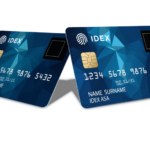“IDEX is bullish on its prospects of its biometric technology’s applications in the Internet of Things, in-display fingerprint scanning on smartphones, and biometric smart cards…”
IDEX has issued its results for 2017. With revenues down and losses up, the report illustrates the same competitive pressures that have come to bear on other fingerprint sensor providers in the mobile market, and growing pains as IDEX seeks to expand into the emerging biometric smart cards market.
The company’s revenues came in at NOK 17.5 million in 2017, compared to revenues of NOK 38.6 million the year before. And IDEX saw a net loss of NOK 255.5 million last year, compared to a loss of NOK 203.3 million in 2016.
In its report, the company gestured to a mobile biometrics sector seeing increasing competition and reduced margins, with its reduction in revenues “primarily reflecting reduced sales into the mobile market.” As for its widening net loss, the company said it “was caused by lower revenues from the shift from mobile to cards, as well as higher costs resulting from expanded operations.”
Nevertheless, IDEX is bullish on its prospects of its biometric technology’s applications in the Internet of Things, in-display fingerprint scanning on smartphones, and biometric smart cards, asserting, “The interest for fingerprint sensors in all three markets is significant.” With respect to the latter in particular, the company highlighted its partnerships with Feitian, IDEMIA, and perhaps most importantly, Mastercard, all of which are actively exploring payment card technology allowing fingerprint authentication of users during transactions. It also made note of technological progress on its contactless biometric card solution, saying it “anticipates initial proof of concept pilots leveraging its contactless solution to commence in the first half of 2018.”
–
April 12, 2018 – by Alex Perala






Follow Us